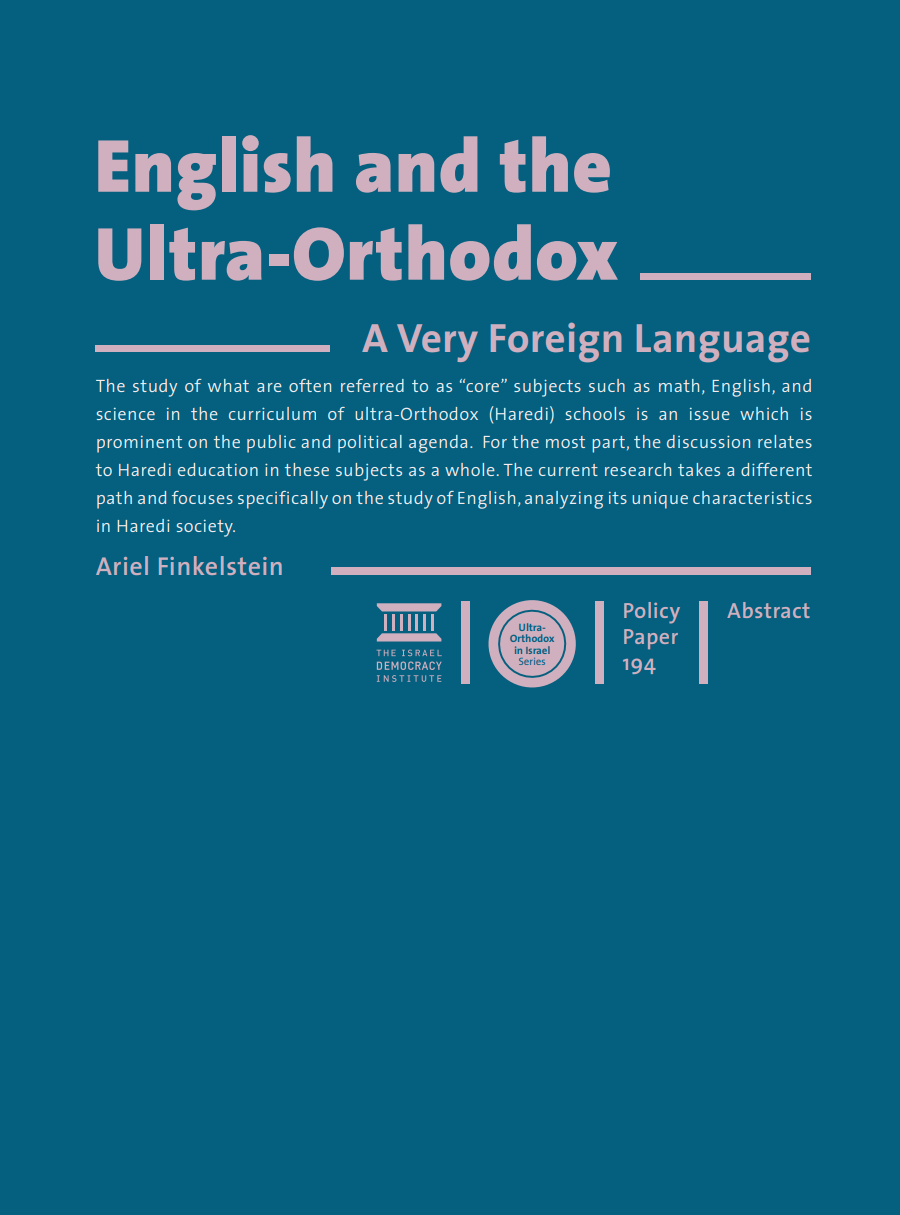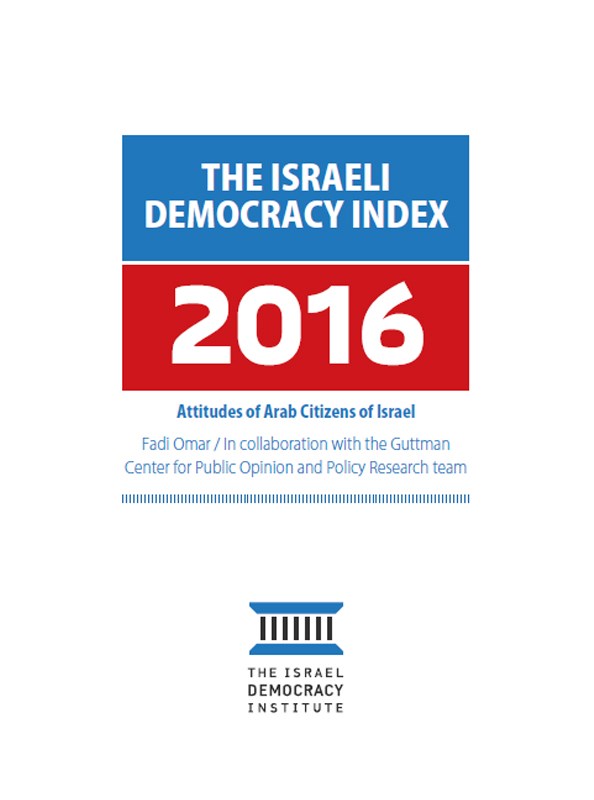

מאמרים, ספרים ואירועים בנושא Minorities
מאמרים
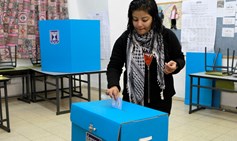
Representation of Women in Arab Local Authorities Following the Results of the 2024 Local Elections
The recent municipal elections produced particularly interesting results in Arab local authorities. Below, we examine several aspects of these results relating to the representation of Arab women.
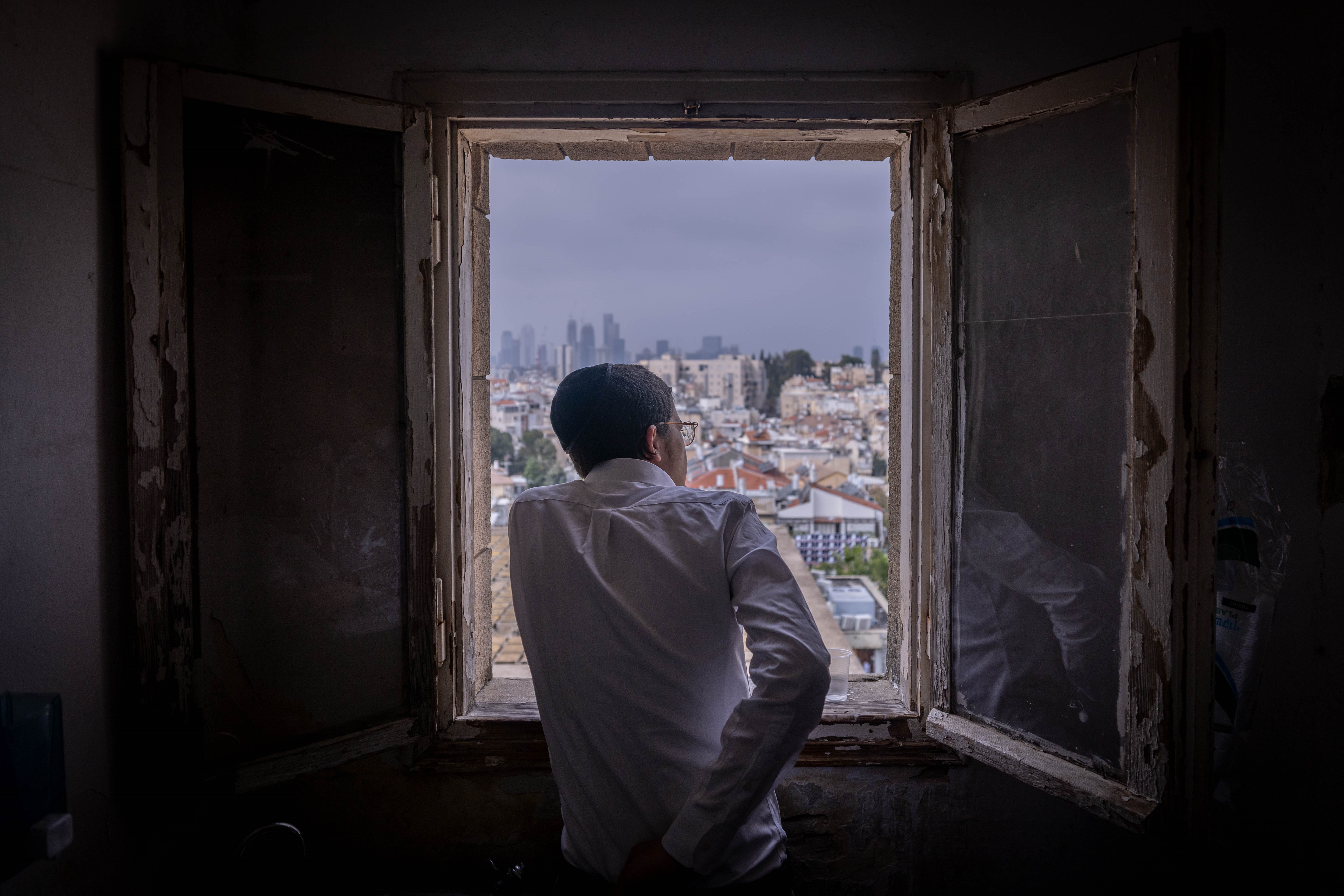
I, Too, Have Come to my Senses: It is Time to Rethink the Haredi Role in Israeli Society
מאת: ד"ר רבקה נריה בן-שחר
Dr. Rivka Neriya-Ben Shahar proposes a model that resembles the secular educational system of colleges and universities to identify the most gifted torah scholars, who would receive a generous stipend. Others must rethink their role as part of Israeli society.
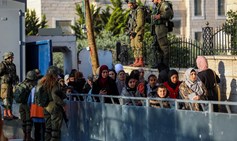
Preparing for Ramadan as Israel Arms Itself
In a few days, Israel's Muslim citizens will begin celebrating the month of Ramadan. While safeguarding this ritual and protecting freedom of worship, security forces will face challenges in defending public security, as this is considered a sensitive time. With the influx Israeli citizens taking part in the civilian defense squads and licensing themselves, the police must make serious efforts to ensure all Israeli citizens feel safe.
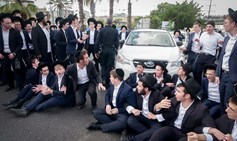
Follow the Money: On the War, Drafting the Yeshiva Students, and the State Budget
מאת: פרופ' בני פורת
The legal basis for deferring military service for Yeshiva students no longer exists, removing legal justification for the transference of funds to religious institutions with students under 26. Funding for Torah study institutions is the most substantial question that needs to be addressed at the current time, when Israeli society is rethinking its relations with the Haredi public.
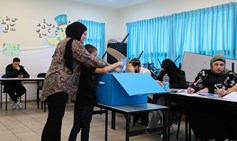
When Violence Dominates Local Arab-Israeli Elections, Democracy Loses
Arab-Israeli public officials are being increasingly targeted by criminals, hoping to get their way through threats, extortion and force ahead of Tuesday's local elections. Running for office shouldn't cost people their lives.
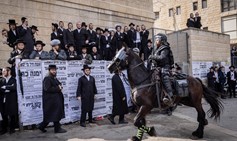
Bordering Beliefs: Israel’s Sociopolitical Divide Between Liberal and Ultra-Orthodox Values
מאת: עו"ד עדנה הראל-פישר
In Israel, social borders, political demands and the status of women continue to underscore tensions between liberal democratic values and the conservative, ultra-Orthodox Jewish communities.
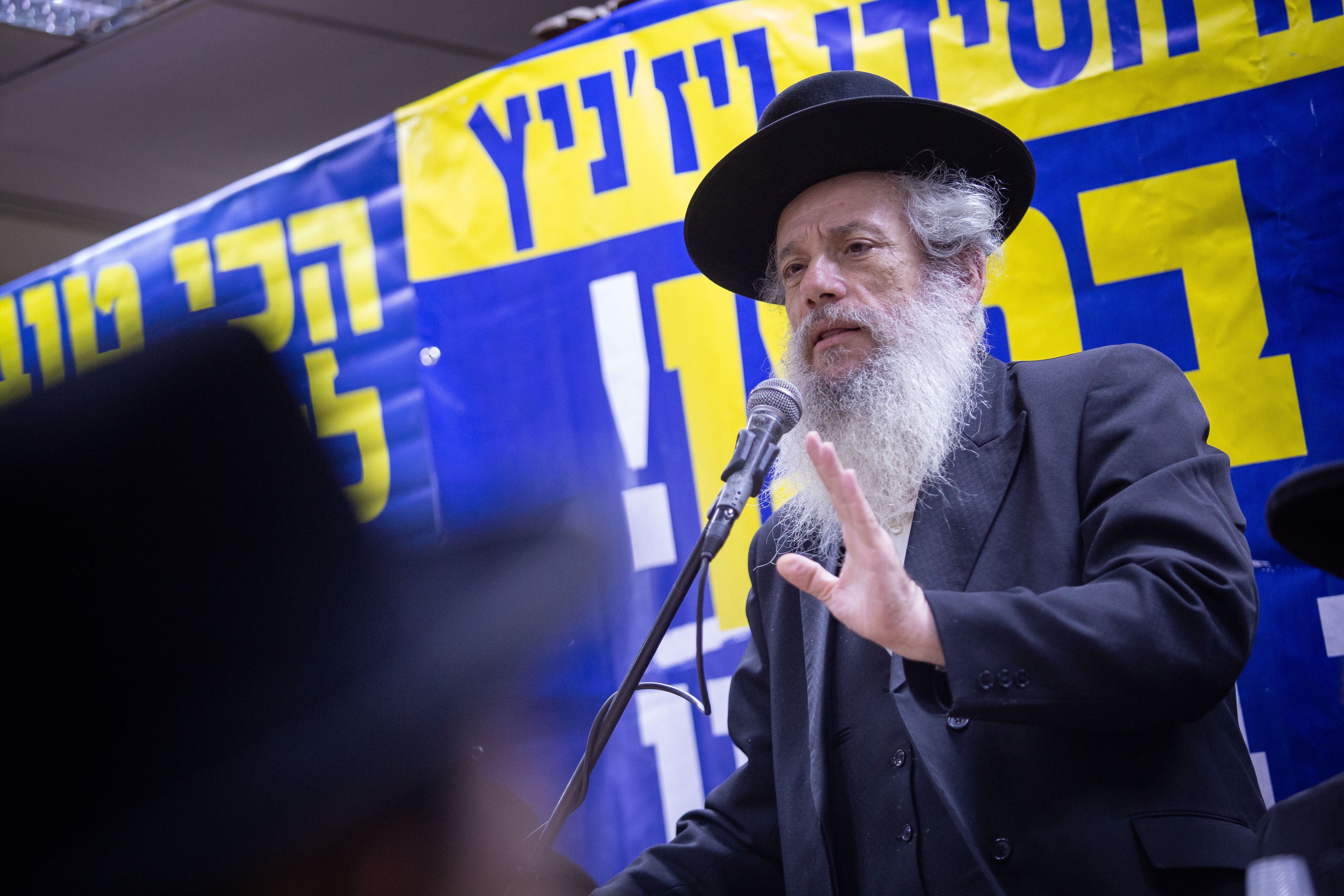
The Political Structure of Haredi Local Authorities and Its Influence on How They Operate
מאת: ד"ר אריאל פינקלשטיין
How are elections in ultra-Orthodox municipalities different from those in non-orthodox local authorities? Are they comparable to the Arab community? A survey an analysis of the political structure of Haredi local authorities.
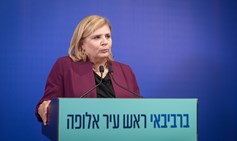
Representation of Women in Elections for Local Authority Heads
From a historical perspective, the proportion of female heads of local authorities in Israel has been extremely low—essentially negligible throughout most decades. How does women’s representation in local authorities during the first two decades of the 21st century compare?
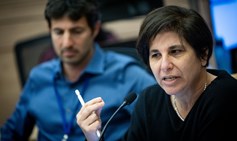
The Inexcusable Absence of Women in Israeli Ministry Leadership Roles
מאת: עו"ד ענת טהון אשכנזי
Minister of the Economy Barkat's decision to remove Adv. Michal Cohen from her role as Director of the Competition Authority compounds a two-pronged problem. On the one hand, the diminishing number of women in Ministry leadership roles, and on the other, increased political interference in professional authorities, risking their independence and professional standards.
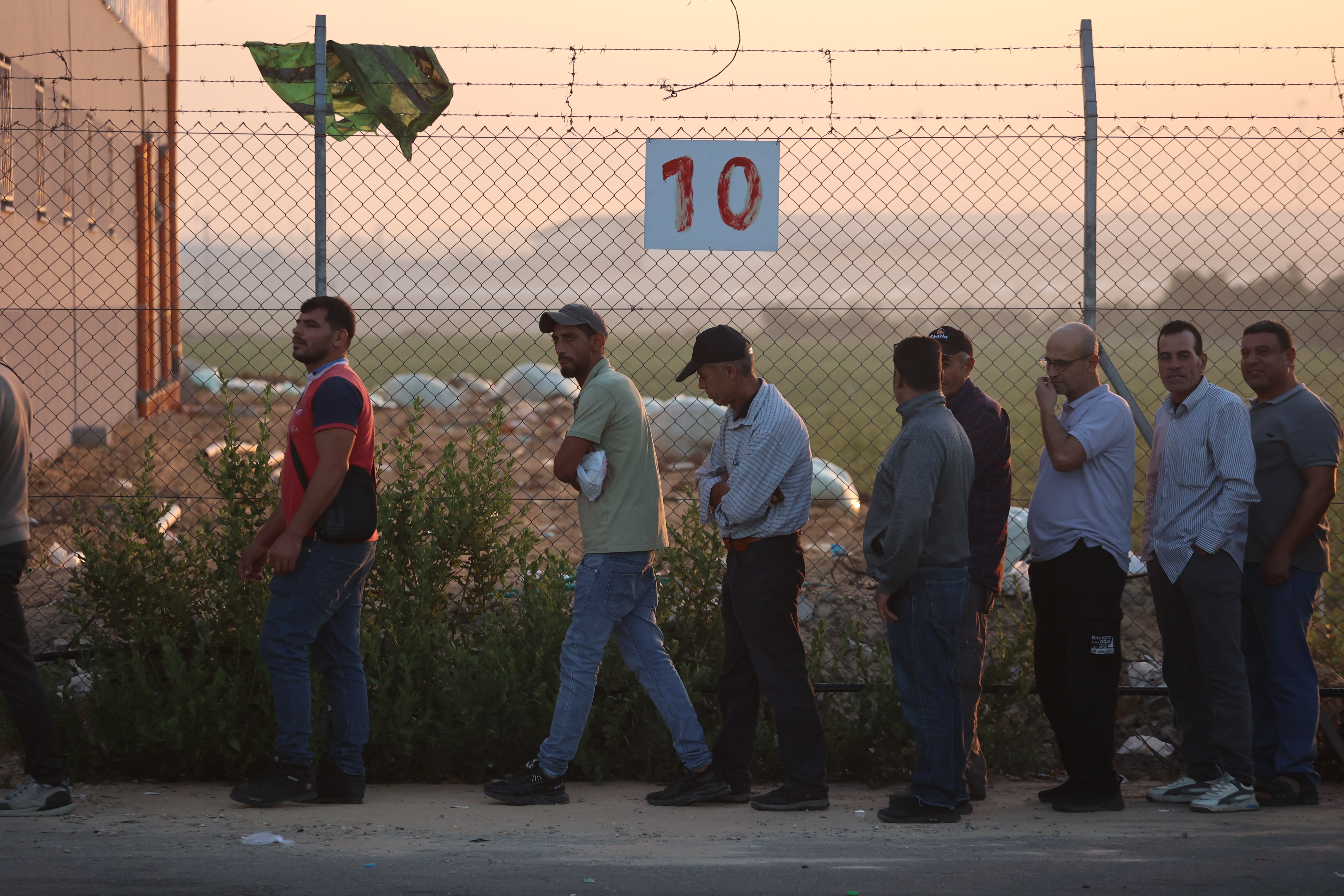
On Palestinian Workers: The Right Answer isn't Always the Easy One
מאת: פרופ' יותם מרגלית
A decision to allow Palestinian workers back into Israel is not at all a simple matter. Despite recommendations by Israel's security agencies to allow entry to Palestinian workers, the Ministers of Construction and of the Economy oppose it for security reasons. As alternative solutions to the severe shortage of workers are unsatisfactory, we must ask ourselves whether we, as a country, are prepared to withstand another socioeconomic crisis.
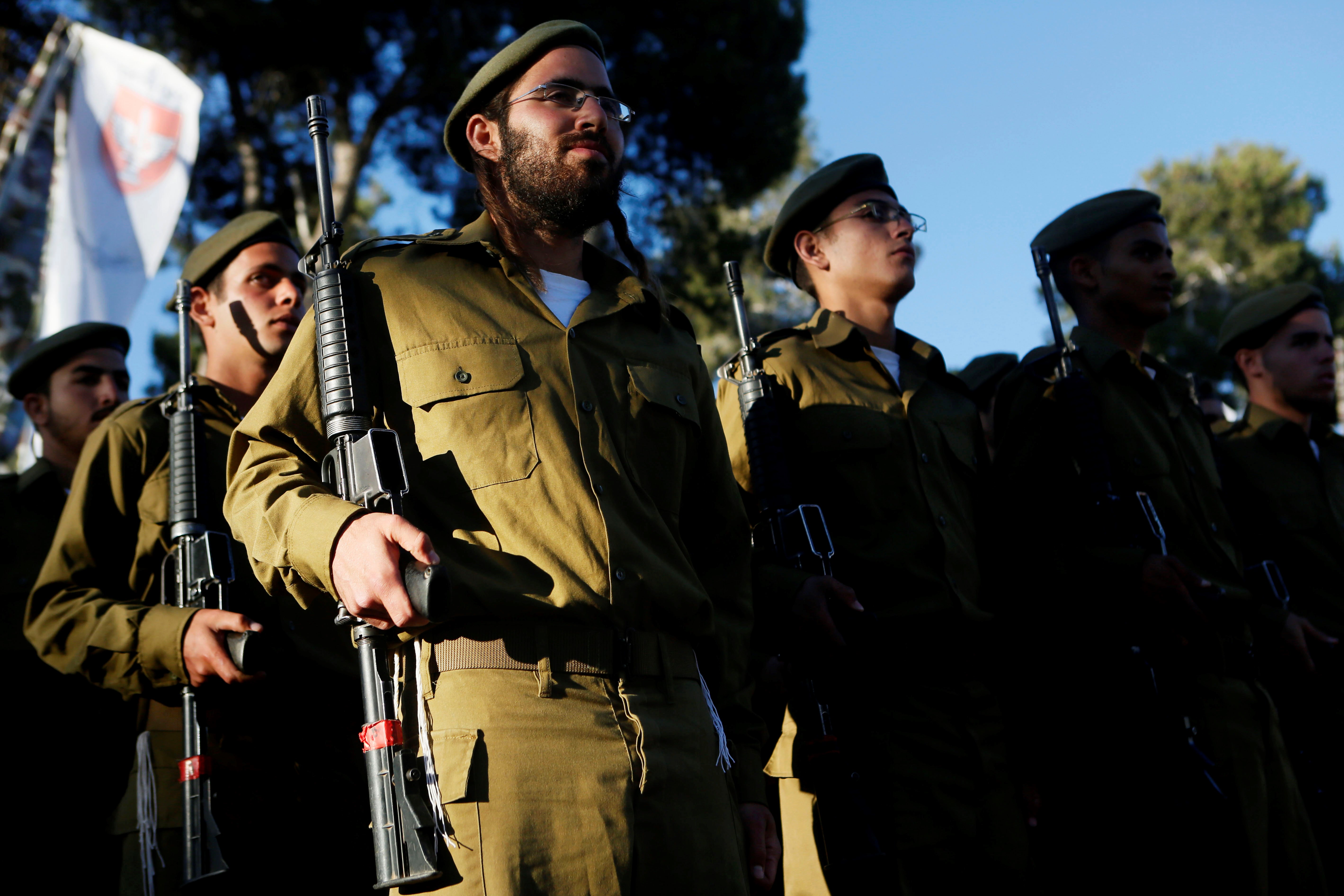
The Modern Haredi, As Envisioned by Rabbi David Leibel
מאת: אליהו ברקוביץ
Recently, a new answer to the dilemma of the 'modern Haredi' has been advanced enthusiastically by Rabbi David Leibel, one that maintains religiosity while increasing civic participation in the economy and in defense of Israel.
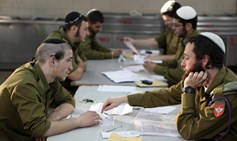
A New Social Contract with the IDF? On the Benefits of Waiting to Decide
The need for expanded IDF service is clear—but the options for achieving this are rife with political contention and economic consequences. The time to rethink long-term security arrangements is after the fog of war lifts, under newly elected leaders with broad public legitimacy.

The Worthy Clause in the Nation-State Law
מאת: ד"ר עמיר פוקס
The Nation-State Law includes a clause that declares the state's obligation to care for all Jewish people and all Israeli citizens whenever they are in jeopardy due to either their Jewish identity or Israeli citizenship. This does not impose a legal obligation, but it does reflect this special value which must not be lost during this war.
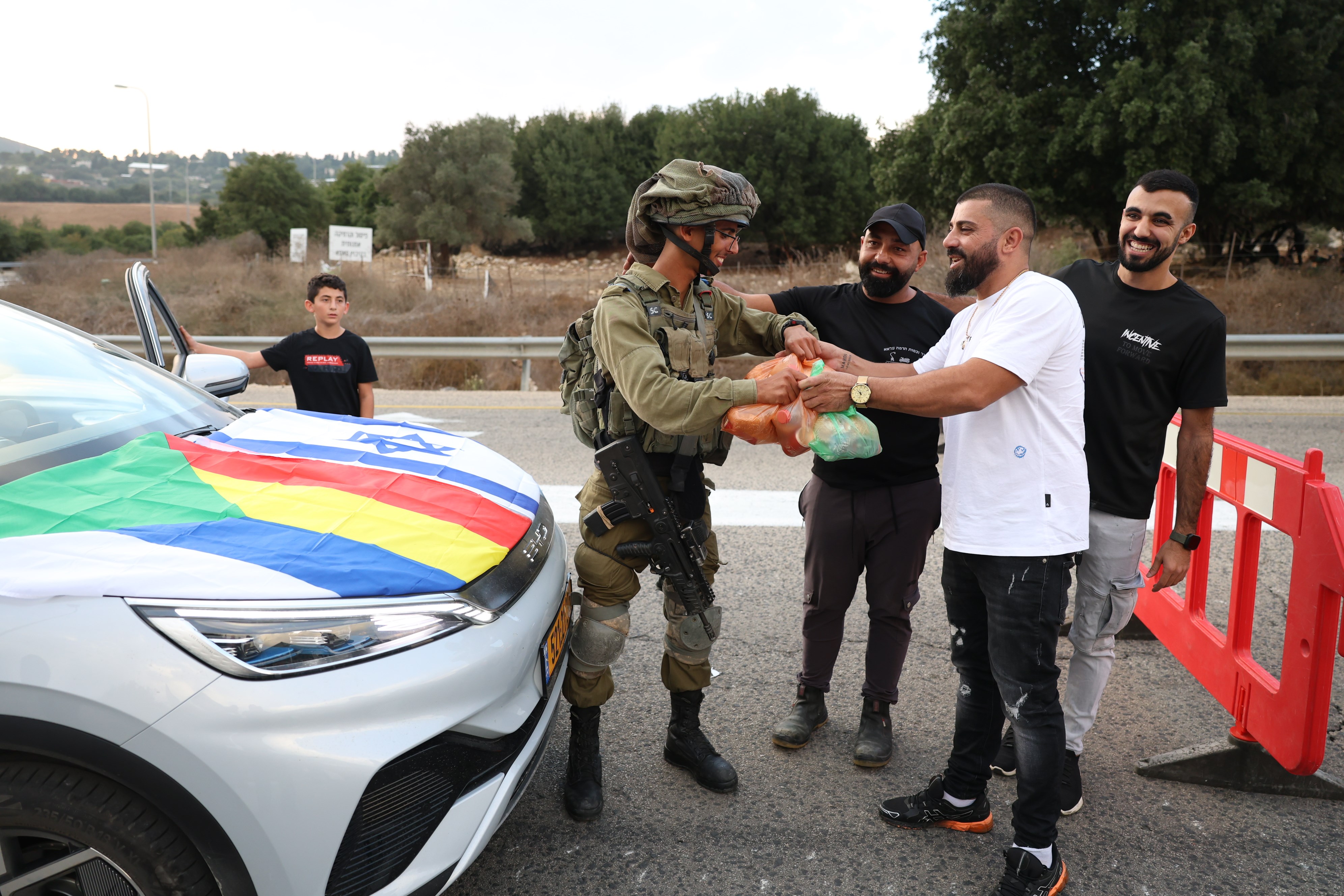
Amend the Nation-State Law. Now.
מאת: פרופ' סוזי נבות
Israel's non-Jewish minorities—particularly those who are fighting and dying for the State of Israel—are worthy of appreciation and recognition, not separately, but as equals. The solution is to amend the Nation State Law, not to pass a new, separate basic law as is currently under consideration.
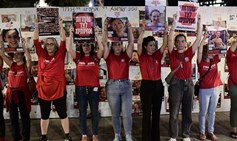
Women in War Under International Law
מאת: עו"ד ענת טהון אשכנזי
Now, when it is clear that Hamas’s murderous attack was unprecedented in its extreme violence, including sexual violence, the relevant international bodies—such as the UN Security Council, UN Women, and the International Red Cross—must respond to these incidents.
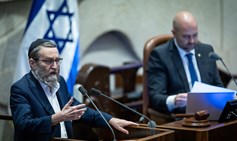
The Gap Between the Haredi Public and Politicians
מאת: ד“ר גלעד מלאך
The divide between Israel's Haredi (ultra-Orthodox) public and the Haredi establishment and political leadership has never been more striking. Many parts of Haredi society have joined the national war efforts while the Haredi political leadership have acted as if nothing has happened.
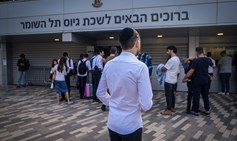
Haredi Enlistment In the IDF – A New Normal?
מאת: אליהו ברקוביץ
A growing number of Haredi men are volunteering for the IDF following the outbreak of the war against Hamas. This trend may signify that the “modern Haredi” phenomenon may be developing into a real movement.
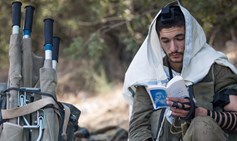
A Blow to the IDF as the ‘People’s Army’
מאת: פרופ' ידידיה שטרן
A proposal by the panel appointed to investigate ultra-Orthodox enlistment to lower the exemption age defies multiple High Court rulings
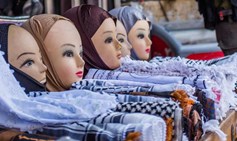
Israel’s next Equal Employment Opportunity Commissioner should be an Arab
מאת: ד"ר טליה שטיינר
The identity of the next commissioner is so important.
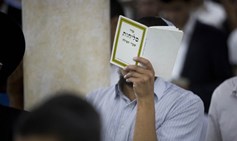
An Israeli Version of Repentance
מאת: פרופ' ידידיה שטרן
The High Holy Days are a time of reflection and personal growth. But since the founding of the State of Israel, personal repentance is no longer enough. IDI Vice President Yedidia Stern stresses the need to transform Jewish traditions from the personal sphere to the public sphere and calls for collective, national repentance, Israeli style.
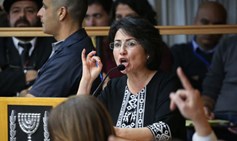
Disqualifying Zoabi: Bad for Security and Bad for Democracy
מאת:
As the Central Elections Committee begins to debate disqualifying MK Hanin Zoabi and others from running for Knesset, IDI Senior Fellow Ami Ayalon writes that as distasteful as some of her words may be, banning Zoabi from running would be a victory for Israel's detractors.
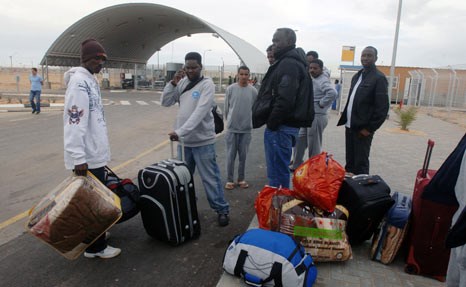
Detention of African Asylum Seekers in Israel: Welcome to Round Three
On December 8, 2014, just before the Knesset dissolved itself to prepare for early elections, it enacted the Law for Prevention of Infiltration and Ensuring the Departure of Infiltrators from Israel. IDI's Dr. Reuven (Ruvi) Ziegler reviews this development.
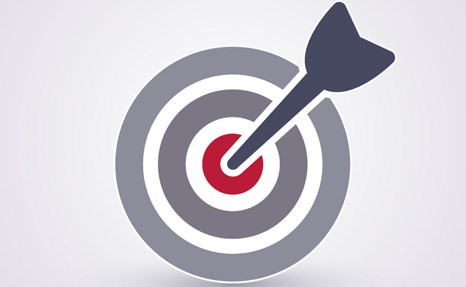
Democracy: The Key Election Issue
מאת: פרופ' מרדכי קרמניצר
In an op-ed in Maariv, IDI Vice President Prof. Mordechai Kremnitzer calls for an election campaign that focuses not only on foreign policy and Israel's social gap, but on the nature of Israeli identity and the value of Israeli democracy itself.
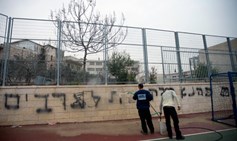
A Four-Step Plan to Combat Hatred between Jews and Arabs in Israel
מאת: יאיר שלג
IDI Research Fellow Yair Sheleg outlines four steps that can allay fears, contribute to dialogue, combat hatred, and improve relations between Jews and Arabs in Israel
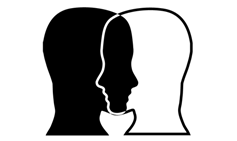
Banning Arab Workers: A Hypocritical Condemnation
מאת: ד"ר עמיר פוקס
The mayor of Ashkelon's announcement following the massacre in a Har Nof synagogue that Arab workers would not be employed in his city was roundly condemned by members of the Knesset. Dr. Amir Fuchs points to the hypocrisy of these condemnations.
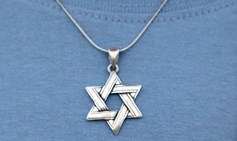
A Ready Alternative to the Nation State Law
מאת: ד"ר עמיר פוקס
IDI researcher Dr. Amir Fuchs criticizes the proposed Basic Law that would establish Israel as the nation state of the Jewish people and recommends accepting Israel's Declaration of Independence as the preamble to Israel's future Constitution instead.
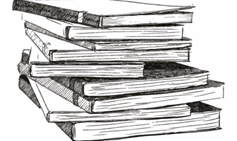
Legal Opinion on the "Zoabi Bill"
A summary of a legal opinion on a proposed amendment to Basic Law: The Knesset that was submitted by Prof. Mordechai Kremnitzer and Dr. Amir Fuchs to the Ministerial Committee on Legislative Affairs.
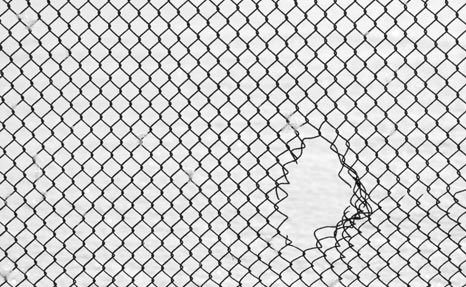
Overriding the Supreme Court: A Breach in the Wall of Democracy
מאת: ד"ר עמיר פוקס
Dr. Amir Fuchs discusses the proposal to add an override clause to Israel's Basic Law: Human Dignity and Freedom that would enable the Knesset to bypass the High Court and deal a a severe blow to the main safeguard of human rights and minorities in Israel.
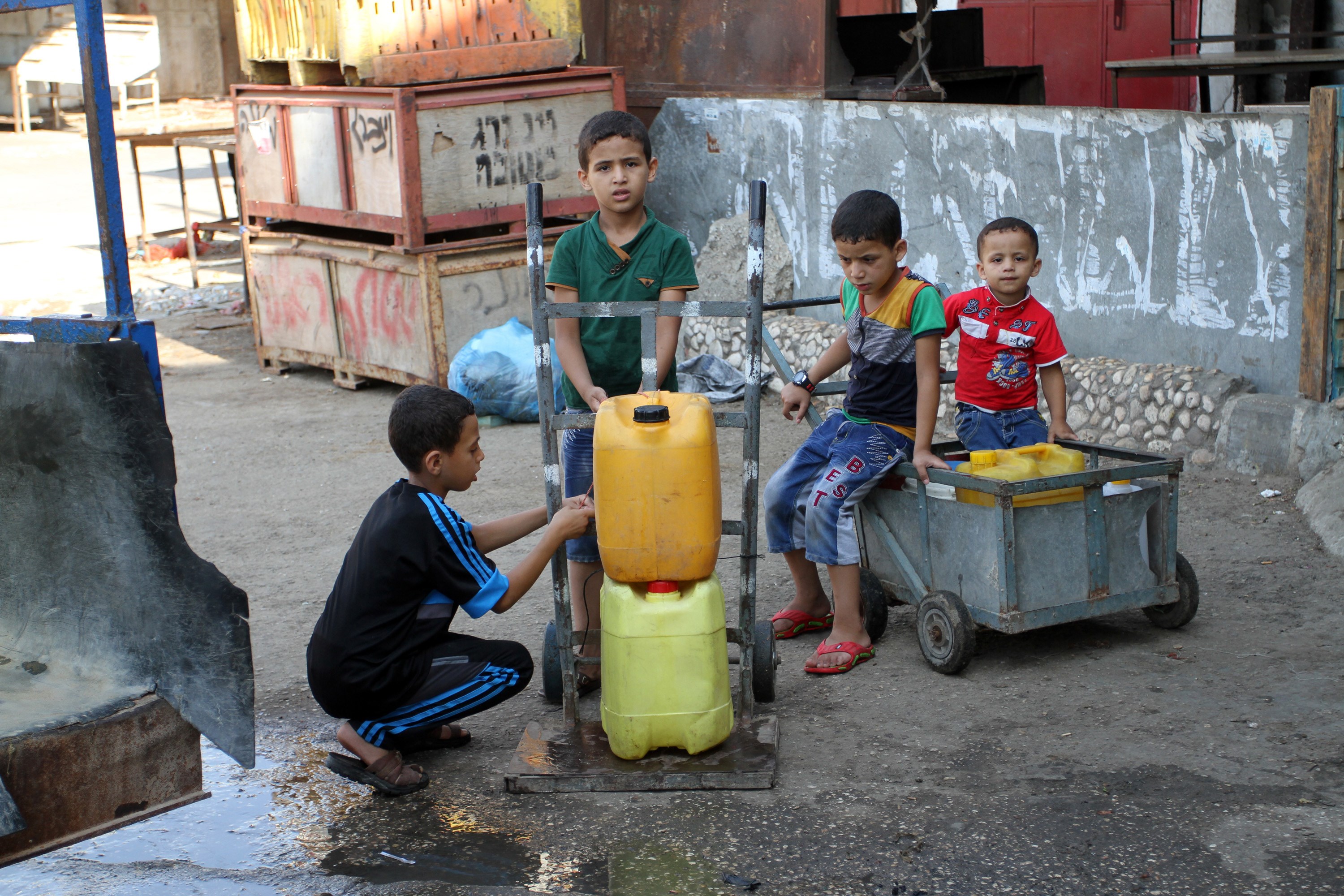
The Admissions Committees Ruling: A Lack of Ripeness or Refusal to Decide?
מאת: ד"ר עמיר פוקס
Dr. Amir Fuchs discusses the Israeli High Court of Justice's decision to uphold the "Admissions Committees Law," which allows small communities to reject applicants due to a lack of social suitability.
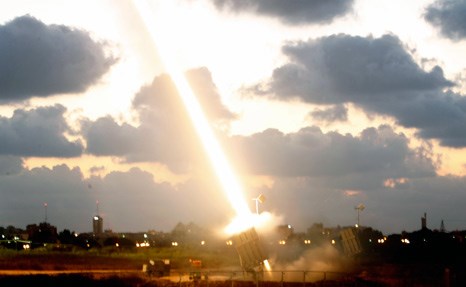
A Social Iron Dome for Jewish-Arab Relations
מאת: פרופ' ידידיה שטרן
In an op-ed in <em>Yedioth Ahronoth</em>, Prof. Yedidia Stern warns that the Iron Dome could not protect Israel from hatred between Jewish and Arab citizens, and stresses the need for both sides to use imaginative empathy to mend the fabric of Israel's shared society.?

Education for Democracy as a Remedy for Violence
מאת: ד"ר עמיר פוקס
Attorney Amir Fuchs asserts that educating Israeli students regarding democracy and civics from a young age and throughout their education is the best way to prevent hatred, violence, and racism.
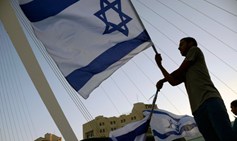
A Red Alert for Israeli Democracy
מאת: יוחנן פלסנר
In the midst of Operation Protective Edge, IDI President Yohanan Plesner warns of the dangers of racism, incitement, and stifling of free speech and asserts that it is essential to internalize a substantive democratic culture.
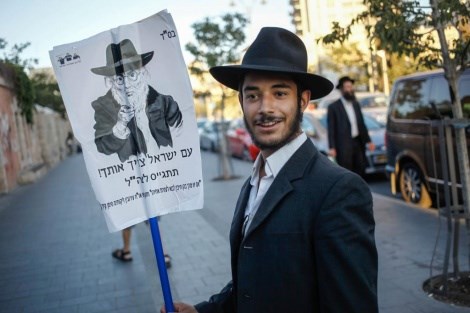
Ultra-Orthodox Integration: It Takes Two to Tango
מאת: ד"ר חיים זיכרמן
In an op-ed in Ynet News, IDI researcher Dr. Haim Zicherman discusses the steps that Israeli society must take in order to enable ultra-Orthodox men to integrate into the Israeli army and workforce.
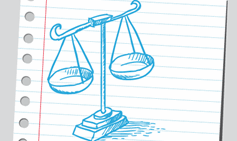
Basic Law: Nation State? Only a Constitution Can Guarantee Israel's National Character
Prof. Mordechai Kremnitzer and Attorney Amir Fuchs assert that the only way to guarantee Israel's existence as a Jewish and democratic state is not through a Basic Law that defining Israel as the nation state of the Jewish people but through a Constitution.
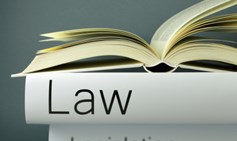
IDI Experts Submit Legal Opinion on Basic Law: Israel as the Nation State of the Jewish People
A legal opinion opposing the proposed Basic Law: Israel as the Nation State of the Jewish People, which was submitted by IDI Vice President Prof. Mordechai Kremnitzer and Attorney Amir Fuchs to the Ministerial Committee on Legislation on June 4, 2014.
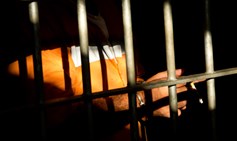
Force-Feeding Prisoners: A Serious Violation of Human Dignity
מאת: ד"ר עמיר פוקס
In an op-ed in <em>Maariv</em>, Attorney Amir Fuchs warns that force feeding hunger striking prisoners is a serious violation of human dignity, and should not be permitted in order to serve public relations efforts of the State of Israel.
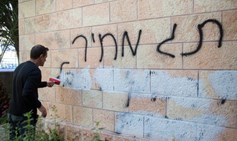
Price Tag Attacks: Racist Crimes
מאת: ד"ר עמיר פוקס
In an article in <em>Haaretz</em>, Attorney Amir Fuchs stresses the need to wage a genuine war against racism, in order to preserve the values of Zionism and safeguard the Jewish and democratic state.

Israeli Public Opinion on Reducing Funding to Organizations that Mark Independence Day as the "Nakba"
מאת: חנן כהן
What do Jews in Israel think about the law mandating the reduction of government funds to institutions that mark Israel Independence Day as a day of mourning for the Palestinian "Nakba"? Find out in this mini-survey conducted by IDI's Guttman Center.

Celebrating Independence: The Vision of Professor Reuven Feuerstein
מאת: Benjamin (Benny) Lau
As Israel prepares to celebrate its independence, Rabbi Dr. Benjamin Lau and Ms. Shira Ruderman remind us of the need to bring people with disabilities into the circle of those who celebrate independence, drawing on the legacy of the late Prof. Reuven Feuerstein in this call for integration.

Public Opinion: Is Israel Independence Day a Holiday?
מאת: חנן כהן
Do Jewish and Arab citizens of Israel see Yom Ha'atzmaut as a holiday? Do perceptions among Jews vary depending upon level of religiosity or position on the right-left political spectrum? Find out in this Mini-Survey from IDI's Guttman Center.

Holocaust Studies for Preschoolers: Another Missed Educational Opportunity?
מאת: ד"ר אריק כרמון
In a <em>Times of Israel</em> op-ed, Dr. Arye Carmon advocates a new approach to educating Israeli school children about the Holocaust, which will humanize both the victims and the perpetrators.
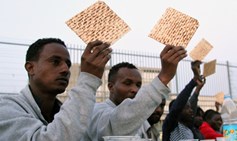
The Lessons of Passover: We are the Other
מאת: פרופ' ידידיה שטרן
Prof. Yedidia Z. Stern asserts that if we see ourselves as "other" and identify with the stranger, the poor, and people with disabilities, historic redemption of our ancestors from Egypt will be an ongoing redemption for our generation.
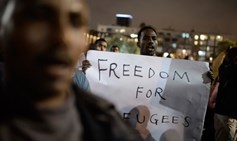
The Prevention of Infiltration Act in the Supreme Court: Round Two
IDI researcher Dr. Reuven (Ruvi) Ziegler explains why he believes the Supreme Court should overturn Amendment No. 4 of the Prevention of Infiltration Act just as it invalidated its predecessor.
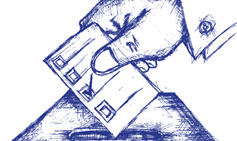
Basic Law: Referendum—Changing the Rules of the Game of Israeli Democracy
מאת: ד"ר דנה בלאנדר
Dr. Dana Blander draws on the findings of Israeli public opinion polls and explores some of the ramifications of the new Basic Law: Referendum, a law that establishes a system in which every citizen is entitled to participate in historic decisions on withdrawal from territory.

The Electoral Threshold: Why the Rush?
מאת: פרופ' עופר קניג
In an op-ed in the Jerusalem Post, Dr. Ofer Kenig warns that while there is nothing wrong with a moderate increase in Israel's electoral threshold, increasing it from 2% to 3.25% in a single step is problematic.

Is "Israeli" a Nationality?
מאת: Jay Ruderman, פרופ' ידידיה שטרן
Should the State of Israel recognize "Israeli" as a nationality? IDI Vice President Prof. Yedidia Stern and Jay Ruderman assert that it is imperative for the State of Israel to continue distinguishing between citizenship and nationality.

Building a Shared Society: On the Priorities of the Israel Police
מאת: פרופ' מרדכי קרמניצר
Prof. Mordechai Kremnitzer explains the importance of the fifth meeting of IDI's Police and Society Forum, which was dedicated to the question of partnership and transparency in the relationship between the Israel Police and Arab society.
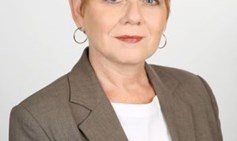
Do You Have to Earn Dignity?
מאת: פרופ' תמר הרמן
Is dignity something that must be earned? Prof. Tamar Hermann, Head of IDI's Guttman Center for Surveys, explores this question, as IDI's Israel Speaks project assembles 200 citizens to begin drafting a Declaration of Human Dignity.

International Disabilities Day 2013: Human Rights and Judaism in Action
מאת: Benjamin (Benny) Lau
In honor of International Day for Persons with Disabilities, Rabbi Dr. Benjamin (Benny) Lau updates us on IDI's efforts on behalf of people with disabilities and reveals that people with guide dogs are now allowed to access the Western Wall.
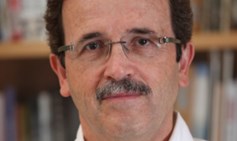
The Binding of the Boy from Damascus
מאת: פרופ' ידידיה שטרן
How should Jews in Israel feel about the mass slaughter of Arabs by Arabs just a few miles away? IDI Vice President Prof. Yedidia Z. Stern shares thoughts in this article, which was originally published in The Jewish Week.
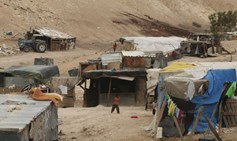
Regulating Bedouin Settlement: A Disengagement Plan for the Negev
מאת: Ronit Levine-Schnur
Ronit Levine-Schnur analyzes the Bill to Regulate Bedouin Settlement in the Negev 5773–2013, warns that it seems to be motivated by an exaggerated fear of a Bedouin takeover of the Negev, and offers an alternative approach.

Blind to the Rights of the Disabled
מאת: Benjamin (Benny) Lau
In an article in The Jewish Week, Rabbi Dr. Benjamin (Benny) Lau calls on religious authorities who hold human rights dear to find a way to allow people with disabilities to have access to the Western Wall plaza.
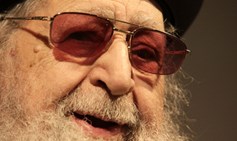
Did You See the Tears of the Oppressed?
מאת: הרב ד"ר בנימין לאו
Rabbi Dr. Benjamin (Benny) Lau, head of IDI's Human Rights and Judaism in Action project, remembers Rabbi Ovadia Yosef as a courageous halakhic decisor who championed the needs of the oppressed.
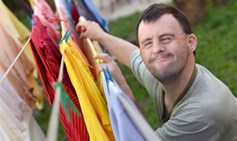
From Institutions to Community Housing
מאת: הרב ד"ר בנימין לאו
Rabbi Dr. Benjamin Lau, head of IDI's Human Rights and Judaism in Action project, presents the transition from institutions to homes in the community for people with disabilities as a Jewish imperative.
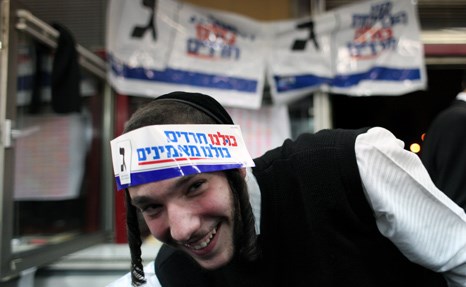
The Comeback of Polarization
מאת: פרופ' בנימין בראון
IDI researcher Dr. Benjamin Brown discusses the sense of attack experienced by the Haredi community in the 2013 election campaign and calls for a process of gradual change in integrating the ultra-Orthodox in the Israeli army and workforce.
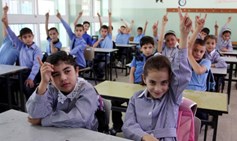
Analysis of Scholastic Achievement Disparities between the Arab and Jewish Sectors: The PISA Tests, 2000 to 2009
מאת: Leah Borovoi, Avital Manor, Nabil Khattab
Research conducted by IDI's Arab-Jewish Relations project reveals a disparity between student achievement in the Jewish and Arab sectors. This abstract points to the variables that explain these disparities.
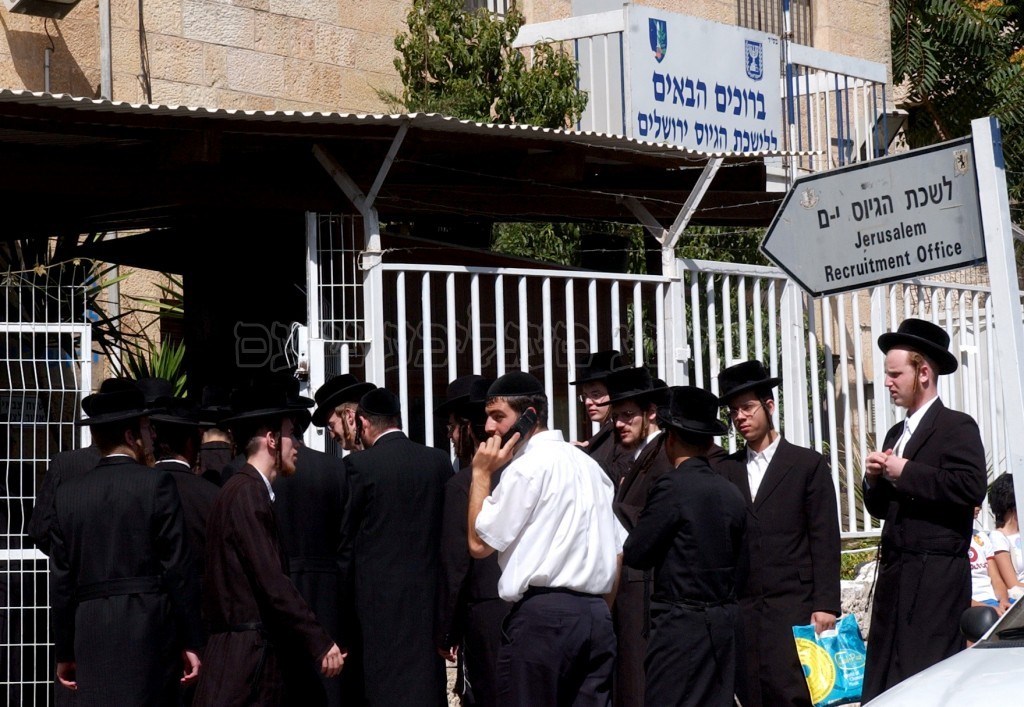
Israeli Public Opinion on Drafting Haredi Yeshiva Students
מאת: Dror Walter, Chanan Cohen
An analysis of Israeli public opinion on the issue of drafting ultra-Orthodox yeshiva students, as revealed in polls conducted by IDI's Guttman Center for Surveys from 1986 through 2009.
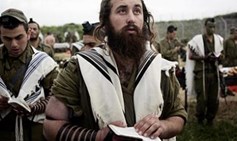
The Haredim and the State of Israel
מאת: פרופ' ידידיה שטרן, Jay Ruderman
In an op-ed in The Jerusalem Post, IDI's Prof. Yedidia Stern, who served on the Plesner Committee for Equality in National Service, and Mr. Jay Ruderman analyze the Haredi community's reluctance to serve in the Israeli army and present an approach that will facilitate Haredi integration into Israel's army and society.
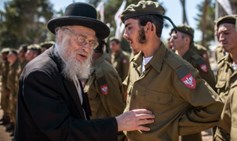
Do Not Put an End to Ultra-Orthodox Army Service
מאת: ד"ר חיים זיכרמן
Following the dissolution of the Committee to Advance Equality in Sharing the Burden, committee head MK Yohanan Plesner submitted proposals for alternatives to the Tal Law. In this article, IDI Researcher Attorney Haim Zicherman, who served as the content coordinator of the Plesner Committee, warns that some of those measures were personal recommendations rather than recommendations of the Committee, and may reverse trends of increasing army service by ultra-Orthodox Jews.
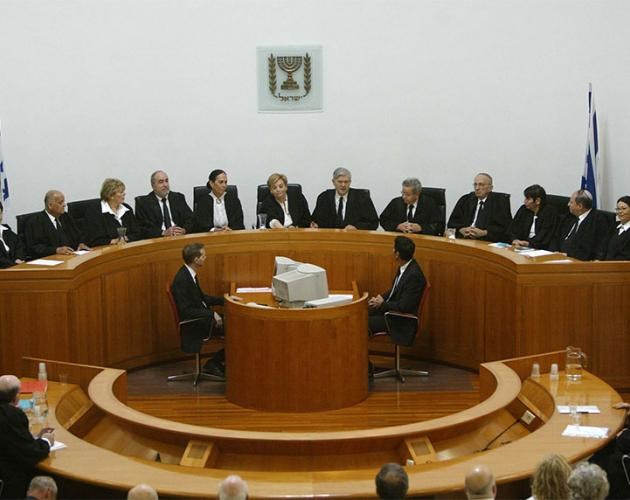
The Tal Law: Judicial Responsibility at its Best
מאת: פרופ' מרדכי קרמניצר
Prof. Mordechai Kremnitzer presents a contrasting view to Prof. Yedidia Stern's assertion that the Israeli Supreme Court's ruling on the exemption of ultra-Orthodox men from military service in Israel is "<a href="http://en.idi.org.il/analysis/articles/judicial-activism-at-its-height">Judicial Activism at its Height</a>."

If They Give, They Will Receive
מאת: יאיר שלג
In this response to the Supreme Court ruling on the Tal Law, IDI Senior Researcher Yair Sheleg asserts that the exemption of ultra-Orthodox men from military service is an unparalleled <em>Hillul Hashem</em>—a desecration of the Name of God, and shares his views of a possible solution.

Dismantling Sectarian Cities of Refuge
מאת: פרופ' ידידיה שטרן
In an op-ed in Yedioth Aharonoth, IDI Vice President of Research Prof. Yedidia Z. Stern calls on the leaders of each "tribe"—Russian, ultra-Orthodox, settler, and upper class— to take action to eradicate the negative behavior stereotypically associated with their camp.

Immigrants and Crime: The Case of FSU Immigrants to Israel
מאת: Michael Philippov
Researcher Michael Philippov exposes stereotypical views of Russian immigrants and suggests that criminality is a product of Israeli society's obtuseness and indifference. He encourages Israel to consider Aliyah absorption seriously and to focus on fundamental problems such as the lack of development of the peripheral regions and insufficient investment in education.

Emigration from Israel – The Overlooked or Hidden Facts
An article by the Guttman Center for Surveys on the desire of young people from the Russian immigrant community in Israel to remain in Israel.

Arab Identity in a Jewish and Democratic State
מאת: Karin Tamar Schafferman
IDI researcher Karin Tamar Shafferman calls for a reexamination of the relationship between Arabs and Jews in the State of Israel and an exploration of the way Israel's Arabs define themselves, in order to determine whether the equality that Ben-Gurion spoke of upon founding the State has been achieved.
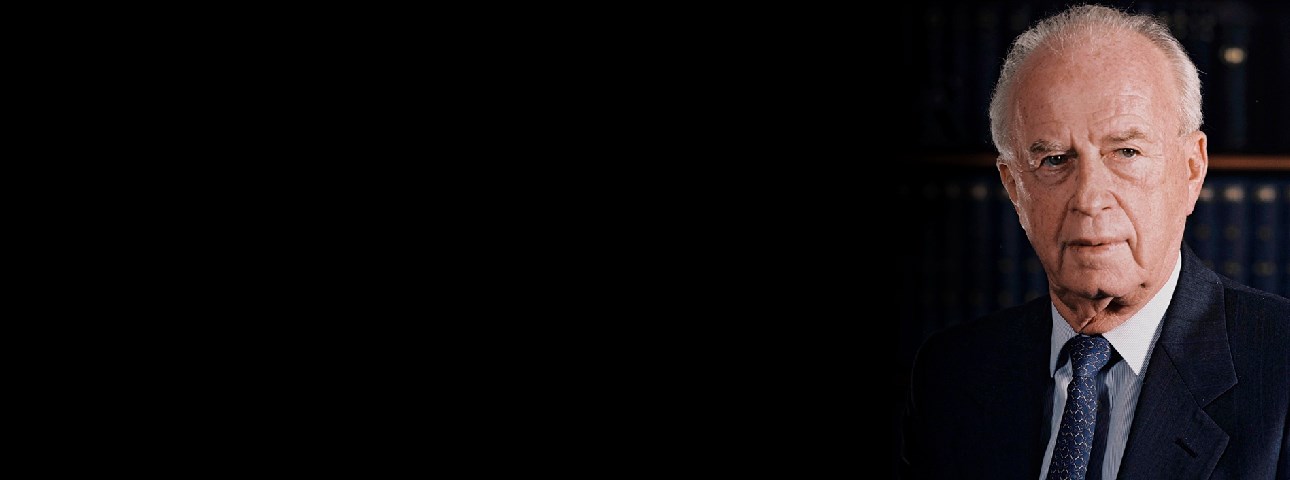
Rabin: Warrior for Equality
Rabin's legacy was equal representation at decision-making levels, fair regulation of land and services in Arab towns and equality as a right that’s guaranteed to all.
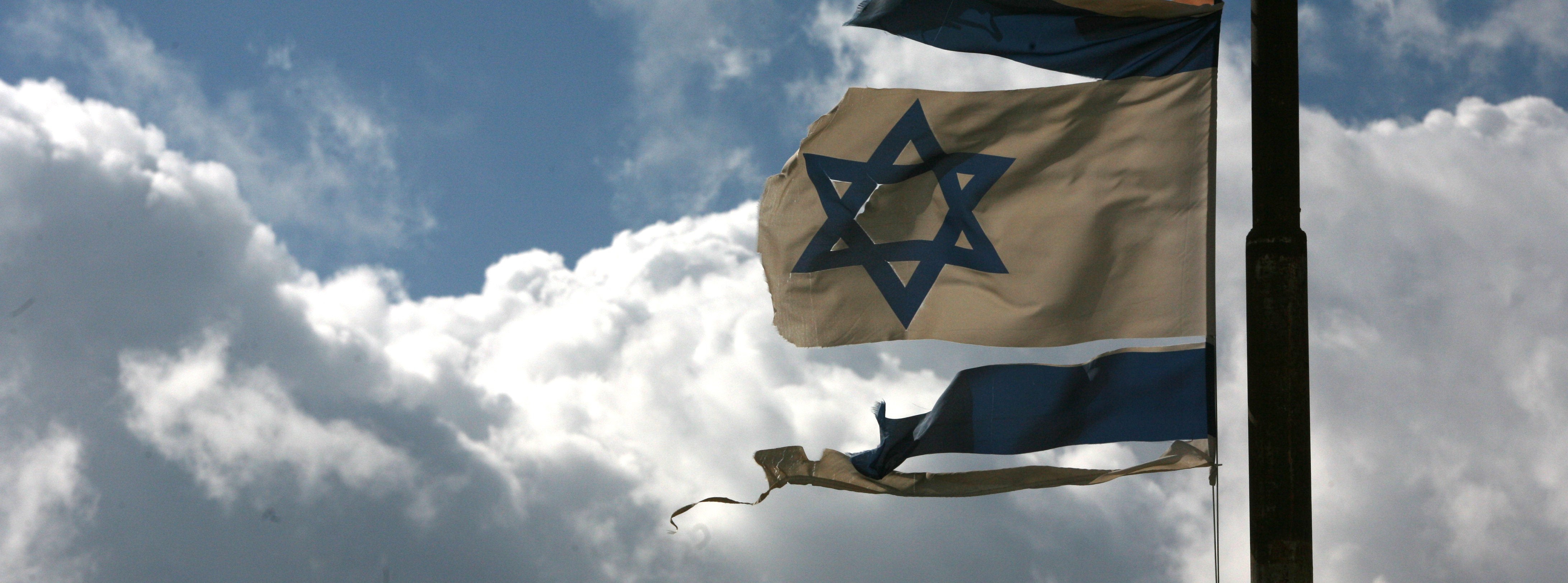
Harmful Revolution: The Nation-State Bill’s Assault on Equality
מאת: פרופ' ידידיה שטרן
Israelis must unite around a balanced arrangement that asserts that Israel is the nation-state of the Jewish people that guarantees equality for all its citizens.
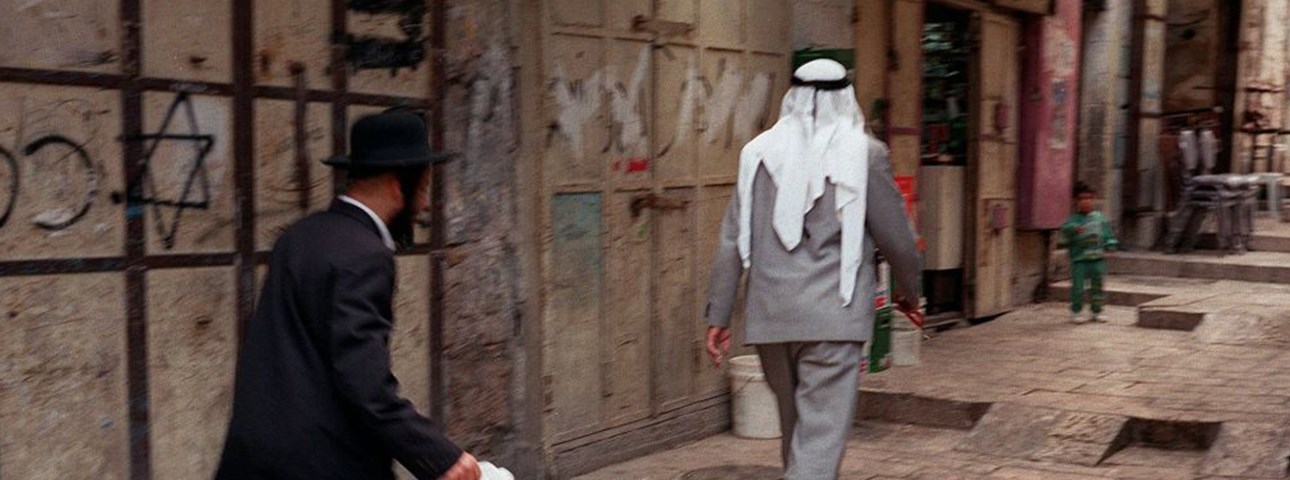
Religion Can Be the Bridge Linking Jews and Muslims
מאת: ד"ר שוקי פרידמן
How both faiths can use their common threads and customs as a means to connect, dialogue and cooperate.
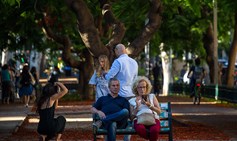
Peace Index: 40% of Israelis Believe that Rifts Between Groups Will Widen
Monthly survey also finds that 84.5% of Israeli public defines mood as good or very good while 43% expresses trust in Prime Minister Netanyahu.
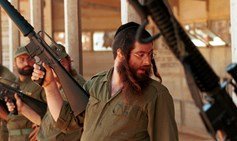
Springboard to Employment: How Ultra-Orthodox Men Benefit from IDF Service
מאת: ד"ר אסף מלחי
Army service is an extremely powerful “employment engine” for most ultra-Orthodox men whose religious education does not provide them with the general background or professional training necessary for joining the work force outside the ultra-Orthodox sector.
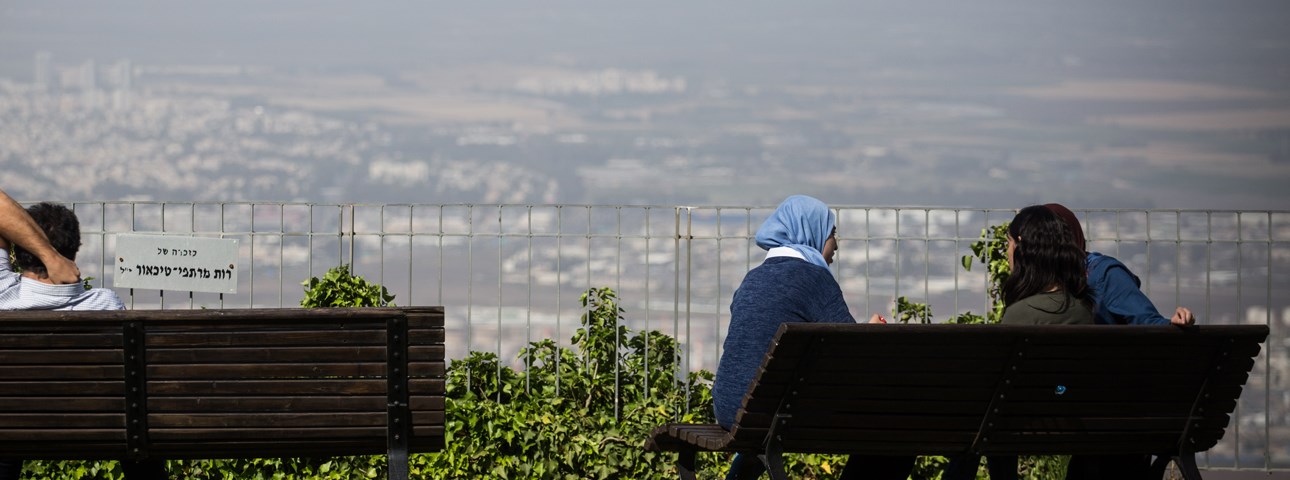
Time to Include Arabs among the Decision-Makers
The state and its Arab leadership, not only the political leadership, must work together to bring as many Arab citizens as possible into the decision-making echelons.
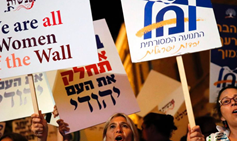
United by Outrage? Israel's Arab Citizens and American Jews
Now you know what it's like to feel marginalized and unequal in Israel. Arab citizens know that all too well. That's why we must join forces.
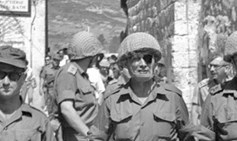
Surveys: 50 Years Since the Six-Day War
The Guttman Center for Public Opinion and Policy Research (then the Guttman Center) carried out a series of surveys just before, during and after the war.

